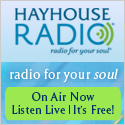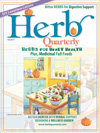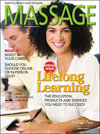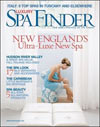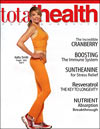We had to hold the presses overnight for this week's edition of
The Reiki Digest to bring you coverage of an important story that broke just as we were about to publish our email edition:
The U.S. Conference of Catholic Bishops committee on doctrine issued a ruling denouncing Reiki, calling it "not compatible with either Christian teaching or scientific evidence" and "therefore inappropriate for Catholic institutions."You can read the full text of the ruling (in PDF)
here.
It's breaking news, but this Reiki story has been developing for some time. Over the past few years, especially since Pope Benedict XVI replaced Pope John Paul II in 2005, various individuals in the Roman Catholic Church have made similar statements not only about Reiki, but yoga, acupuncture, and other modalities. Ironically, many Catholics, including nuns, have been practicing and teaching Reiki, often in Catholic institutions, for years. One of them,
Sister Roseann Kasayka, Ph.D. and Reiki Master Teacher, of the Order of St. Francis, was the subject of the very first obituary in The Reiki Digest when she died in 2006. She was a pioneer in the field of geriatric care, and in December 2006, a different committee of
the same organization that denounced Reiki this week dedicated a training conference to her memory in recognition of her contributions to the field.
While Pope John Paul reached out to other religious and spiritual groups,
Pope Benedict has been more confrontational, controversially criticizing other religions as well as science. Benedict has yet to make any statements on Reiki himself, at least not publicly. This week's ruling comes not from the Pope, but from
the official leadership body of the Roman Catholic Church in the United States.
"For a Catholic to believe in Reiki therapy presents insoluble problems . . . a Catholic who puts his or her trust in Reiki would be operating in the realm of superstition, the no-man's-land that is neither faith nor science . . . Since Reiki therapy is not compatible with either Christian teaching or scientific evidence, it would be inappropriate for Catholic institutions, such as Catholic health care facilities and retreat centers, or persons representing the Church, such as Catholic chaplains, to promote or to provide support for Reiki therapy."
The document cites some sources, including a few books about Reiki, but the major reference books on the subject are conspicuous by their absence.
We've been in touch with several Catholic Reiki practitioners since the ruling, but perhaps understandably, most declined to speak publicly about it. One of them wanted to spend some time in prayer before commenting, and others said they have no plans to abandon their Reiki practices because of the ruling.
Dr. Olga Rodriguez Rasmussen of suburban Washington, D.C., a Catholic theologian who practices and teaches both Reiki and yoga, had this reaction:
It is first of all, important to note that the operative word in this document is "guidelines." While everything in the document is consistent with traditional Catholic teaching, it does not carry the binding force of an Infallible Papal pronouncement or the weight of an Encyclical Letter. There is a hierarchy of importance that is accorded to documents that are released by the Vatican, and by local Conferences of Bishops.
There are many Catholic practitioners of Reiki, including religious women and priests, who have beautifully integrated the practice of Reiki in their healing ministry. I have had the pleasure of working with some of them who are deeply committed to their faith and their vocation. There are also a legion of individuals whose lives have been transformed by this practice.
Currently, there are many studies that are taking the practice and effects of Reiki under consideration. I for one, have humbly witnessed the healing of many of my Reiki clients - on a physical, emotional, and spiritual level. In some cases, Reiki has helped some to die and reconciled them to their faith.
It is also important to note, that the Catholic Church has historically taught that each individual must ultimately respect the dictates of his or her informed conscience. Personally, I do not believe that the practice of Reiki is inconsistent with my own faith. I believe that God is revealed in many ways, and many practices - if one is but open to the Presence of the Divine in one's life.
The practice of Reiki has become very mainstream and I believe it will continue to flourish."
Olga Rodriguez Rasmussen, D.Min.
Thanks, Olga.
As our regular readers know, The Reiki Digest has made an effort to correct misinformation about Reiki since our founding nearly 3 years ago, and we feel obligated to do the same in making a few points about this controversial ruling.
The ruling states that "Reiki is a technique of healing that was invented in Japan in the late 1800s by Mikao Usui" -- actually, Usui founded the system of Reiki in 1922.
It also states, "According to Reiki teaching, illness is caused by some kind of disruption or imbalance in one's 'life energy.' Perhaps some Reiki teachers say that, but so far none of the teachers we've encountered in three different Reiki master programs has put it quite that way. Instead, they made the point that in Reiki we do not diagnose. If we do not diagnose, then we don't claim to know where any illness comes from. That's not our job.
The document states: "Much of the literature on Reiki is filled with references to God, the Goddess, the 'divine healing power,' and the 'divine mind.' " We don't know what literature on Reiki the bishops are referring to as they do not cite a source, but, again, that's not what we learned from any of our teachers.
". . . Likewise, the various 'attunements' which the Reiki practitioner receives from a Reiki Master are accomplished through 'sacred ceremonies' that involve the manifestation and contemplation of certain 'sacred symbols' (which have traditionally been kept secret by Reiki Masters). Furthermore, Reiki is frequently described as a 'way of living,' with a list of five 'Reiki Precepts' stipulating proper ethical conduct," the document states.
First, sacred ceremonies are not exclusive to either Catholicism or Reiki, nor are they necessarily in conflict with them. For example, my daughter received her bachelor's from a major European university that was founded by a 14th-century Holy Roman emperor. Her studies began with a sacred (but not Roman Catholic) ceremony with some secret aspects, the same ceremony used to initiate students since the school was founded in 1348. Second, which, if any, of the Reiki Precepts is in conflict with the Roman Catholic Church?
For today only:
Do not anger,
Do not worry,
Be humble,
Be honest in your work,
Be compassionate to yourself and others.
The document further states that ". . . Reiki lacks scientific credibility. It has not been accepted by the scientific and medical communities as an effective therapy. Reputable scientific studies attesting to the efficacy of Reiki are lacking, as is a plausible scientific explanation as to how it could possibly be efficacious."
People used acetylsalicytic acid, the active ingredient in aspirin, for thousands of years before there was any "scientific explanation as to how it could possibly be efficacious." There is no record of the Catholic Church denouncing it before scientists found an explanation.
The document continues, "The explanation of the efficacy of Reiki depends entirely on a particular view of the world as permeated by this 'universal life enegy' (Reiki) that is subject to manipulation by human thought and will. . . for the Reiki practitioner the healing power is at human disposal." Again, that's not what my Reiki teachers taught me. On the contrary, they taught that the meditative techniques used in Reiki help us keep ourselves out of the way as much as possible when giving a treatment, and the better we get at using them, the less we interfere with the energy.
Another point on which all my teachers have been in agreement is that Reiki is not a religion, and neither the practitioner nor the recipient need believe anything in order for it to work.
More unfortunate misconceptions: The document claims that Reiki is ". . .a technique that once mastered will reliably produce the anticipated results." In the footnote on that sentence, the authors state, "Reiki Masters offer courses of training with various levels of advancement, services for which the teachers require significant financial remuneration. The pupil has the expectation and the Reiki Master gives the assurance that one's investment of time and money will allow one to master a technique that will predictably produce results." They do not cite a source for any of those claims, all of which are completely contrary not only to what I learned from my teachers, but what I paid them for my training. I do not tell my students anything of the sort, nor do I require "significant financial remuneration." I have heard that members of the Reiki Alliance once had a standardized fee of $10,000 for Reiki master training, but if that is still practiced then it is the exception rather than the rule, and Alliance members are now greatly outnumbered by practitioners who are not part of that organization.
It appears that rather than doing comprehensive research or reaching out to request information from Reiki teachers and practitioners, whether Catholic or not, the bishops have created a straw man version of Reiki, then ruled against it. What a pity that a significant part of the ruling is based on misinformation.
Meanwhile, I am reminded of what a Reiki colleague of mine was told when she showed up for her regular volunteer shift at a local hospice. "The archbishop says no Reiki," she was told by a sympathetic nurse there, "So from now on, just call it Therapeutic Touch."
Readers, we invite your comments on this issue. Add them to this post (click on the word "comments" at the bottom of this post on our web site -- you don't have to log in, just scroll down in the comments window and type into the blank white rectangle. Or you can email your comments to editor@thereikidigest.com.














